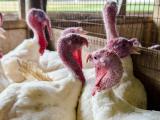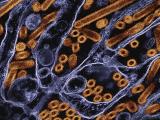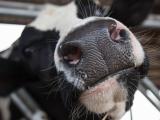Jul 5, 2005 (CIDRAP News) – International health organizations have come up with a plan to control H5N1 avian influenza within a decade and want more than $100 million in donations to fund it, according to reports from a conference in Malaysia.
The plan was prepared by the United Nations Food and Agriculture Organization (FAO) and the World Organization for Animal Health (OIE) in cooperation with the World Health Organization (WHO), according to an Agence France-Presse (AFP) report today.
Joseph Domenech, the FAO's chief veterinary officer, was quoted as telling reporters at the conference in Kuala Lumpur, "It's an international crisis, it has to be an international vision for awareness, surveillance and early response."
The plan calls for spending $102 million to fight the disease in animals over the next 3 years, the AFP report said. The plan is now being circulated among potential donor countries, which called for more information on disease-control strategies when they were first asked for contributions in February, Domenech said.
Domenech said donor countries have pledged less than $30 million so far for containing avian flu over the next 3 years, according to a Reuters report yesterday. He said the European Union has pledged another 50 million euros for the period 2007-11.
According to AFP, the plan advocates more research on the H5N1 virus, better surveillance for disease in animals, openness in the way poultry producers and governments report information about the virus, and the appropriate use of vaccination, culling, and diagnostic tests.
Under the plan, initial efforts would focus on Southeast Asia, East Asia, and South Asia, but efforts in the rest of Asia and in Africa, Europe, and America would begin in October.
Authorities will have to use poultry vaccination programs in some places, Domenech told reporters. "In some countries heavily infected there is no way to get rid of the disease with pure stamping out methods and vaccination must be used," he said. Experts say vaccinating poultry for avian flu viruses can sometimes backfire by turning birds into asymptomatic carriers of the viruses.
In a statement yesterday, the FAO said, "In some countries or part of countries, such as in Viet Nam, where the virus is widely spread, massive vaccination could be the only way to reduce infection in poultry to protect humans."
The FAO said the Malaysia meeting would assess current practices and regulatory measures in the production and marketing of live animals in Asia for their potential effects on human health.
The 2-day meeting in Kuala Lumpur was organized by the FAO, OIE, and WHO. In his opening statement at the meeting, Domenech said the avian flu situation remains critical and needs more attention, according to the FAO news release issued yesterday.
"Highly pathogenic avian influenza must be considered an endemic disease and must be controlled at source in animals," Domenech stated.
According to an AFP report yesterday, Domenech called on China to be more open about its efforts to control avian flu and urged the country to curb the use of human antiviral drugs in poultry. He called the use of human flu drugs by Chinese farmers "a big concern."
The Washington Post reported recently that Chinese farmers had used the antiviral drug amantadine in poultry for years. The H5N1 virus is resistant to amantadine, and the Post story said experts attributed that resistance to the use of the drug in poultry. Chinese authorities said they did not approve of that practice.
AFP quoted Domenech as saying at the meeting, "The situation is still not clear and FAO appeals to the Chinese authorities to provide current information regarding the use of such drugs."
See also:
Jul 4 FAO news release
http://www.fao.org/newsroom/en/news/2005/104425/index.html



















